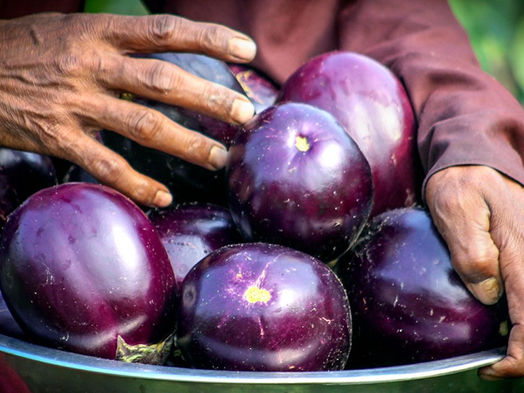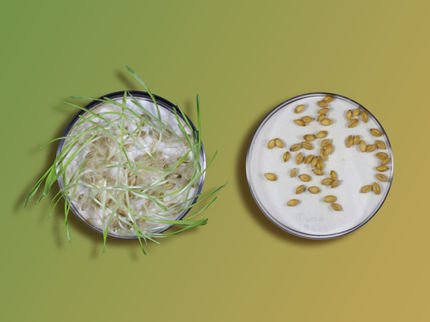$10M project aims for more pest-resilient food options in Asia
Advertisement
A new Cornell University-led project will accelerate the application of a proven biotechnology to enhance food and nutritional security in Bangladesh and the Philippines while protecting the health of farmers and the environment.

A farmer harvests Bt eggplant in Bangladesh in 2018.
Arif Hossain
The Feed the Future Insect-Resistant Eggplant Partnership is funded by a five-year, $10 million grant from the U.S. Agency for International Development (USAID) as part of Feed the Future, the U.S. government’s global hunger and food security initiative. The new award will continue efforts to introduce genetically engineered (GE) eggplant varieties that are resistant to devastating insect infestations and can reduce or eliminate the need for harmful pesticides.
The multifaceted project takes up the complex challenge of science and policy. The work will empower scientists in Bangladesh and the Philippines to develop new, locally adapted varieties of eggplant while engaging with policymakers on clear regulatory pathways for their release.
The goal, according to project director Maricelis Acevedo, research professor of global development, is a more prosperous, food-secure and gender-equitable future for Bangladesh and the Philippines.
“Crop pests and pathogens are a threat to food security and the environmental sustainability of food systems globally,” Acevedo said. “Sustainable agricultural practices are essential to food production, and scientists and local regulatory agencies must work in tandem to produce food crops that are better and safer for the environment and people.”
Based in Cornell’s Department of Global Development in the College of Agriculture and Life Sciences (CALS), the Feed the Future Insect-Resistant Eggplant Partnership combines expertise in agricultural and social sciences to achieve equitable socioeconomic results. As part of the project, the Alliance for Science – based at the Boyce Thompson Institute (BTI) – and Farming Future Bangladesh will address misconceptions about safety, and build a scientifically rigorous link between biotech crops and nutritional security.
Additionally, Hale Ann Tufan, research professor of global development, will study whether biotechnology products equitably benefit women, men and young people within households that adopt them in Bangladesh. Looking beyond household-level income benefits, the study will examine how gender norms and intrahousehold dynamics specifically shape positive or negative outcomes for women and youth.
Eggplant is rich in fiber and antioxidants and is one of the most popular vegetables in Bangladesh. Farmers growing eggplant must contend with continuous threats from insects, the most damaging of which is the eggplant fruit and shoot borer (EFSB). Larvae feed on young and maturing fruit, rendering infested eggplant inedible.
Bt eggplant contains genes from the common soil bacterium Bacillus thuringiensis (Bt), which is also widely used in organic agriculture. Studies show Bt is harmless to mammals, soil organisms and beneficial insects, but toxic to harmful insect pests. Rigorous safety trials have proven Bt eggplant to be an effective means for controlling EFSB without the need for pesticides.
The first genetically engineered food crop approved in South Asia, Bt eggplant has grown dramatically in popularity by farmers since it was introduced in 2014. Studies have shown that farmers in Bangladesh who switched to Bt eggplant increased yields 51% and net revenues 128%, while reducing pesticide costs 38% and reported pesticide poisonings 12%.
Despite these successes, biotechnology development and adoption remain a contentious issue. Local partnerships in the private and public sectors will help achieve sustainability of the technologies and engage directly with farmers and policymakers in Bangladesh and the Philippines.
“Farmers are demanding more resilient crops that are higher yielding and safer for them to farm and consume,” Acevedo said. “Bt eggplant delivers on all these fronts.”




























































